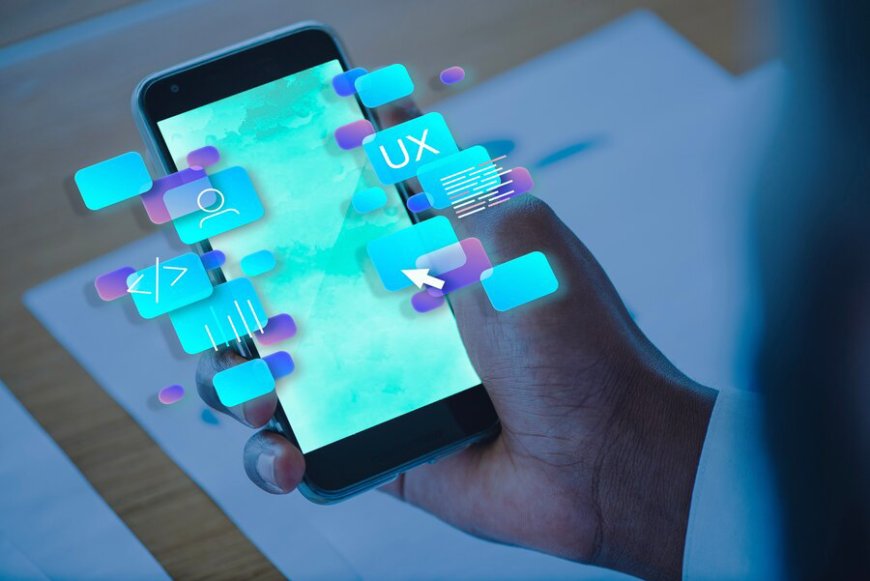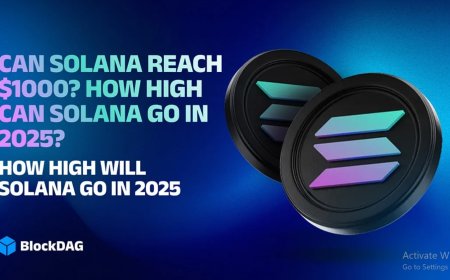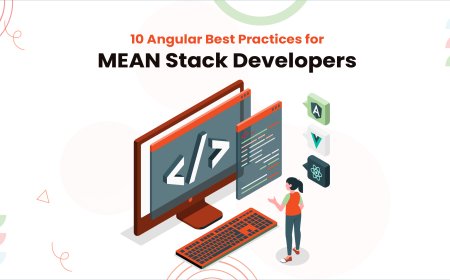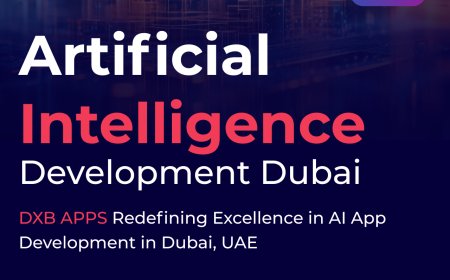Personalization Through AI in App Interfaces

Personalization Through AI in App Interfaces
In today's digital-first world, user expectations for personalized, seamless, and intuitive app experiences have reached unprecedented levels. Personalization has evolved from a desirable feature to a fundamental necessity in mobile applications. Thanks to the power of Artificial Intelligence (AI), personalization is not only possible but scalable, intelligent, and increasingly precise. In this comprehensive blog, we'll explore how AI is revolutionizing personalization in app interfaces, with deep insights from Pixel Genesys, a leading mobile application development agency offering top-notch android app development services and cutting-edge solutions as an iOS app development company.
What is Application Development?
Before diving into the impact of AI on personalization, its important to understand the broader context of what is application development. Application development refers to the process of creating software applications that run on various devices, particularly mobile platforms such as Android and iOS. It includes planning, designing, coding, testing, and deploying the application. A mobile application can serve numerous purposesfrom entertainment and e-commerce to productivity and business intelligence. As competition in the app ecosystem intensifies, developers are increasingly turning to personalization to enhance user engagement and retention.
The Importance of Personalization in App Interfaces
User personalization in mobile apps involves tailoring the app experience to match individual user preferences, behaviors, and contexts. A personalized app interface can:
-
Improve user engagement and satisfaction
-
Increase app usage frequency
-
Boost conversion rates and in-app purchases
-
Foster long-term customer loyalty
For example, streaming platforms like Netflix and Spotify use personalization algorithms to recommend content, while shopping apps suggest products based on previous purchases and browsing history. This level of personalization would be impossible without the support of AI technologies.
How AI Powers Personalization in Apps
AI plays a critical role in making real-time personalization achievable and effective. Here are some of the main AI-driven techniques used for personalization:
1. Machine Learning (ML) Algorithms
Machine learning enables apps to learn from user behavior and improve over time. For instance, an AI-powered e-commerce app can learn what type of products a user prefers and start showcasing similar items on the home screen. These ML models can process large volumes of data to detect patterns and preferences.
2. Natural Language Processing (NLP)
NLP allows apps to understand and respond to human language. Chatbots and voice assistants like Siri and Google Assistant rely on NLP to interact with users in a natural, conversational manner. NLP can also be used to analyze text input to better understand user needs.
3. Predictive Analytics
Predictive analytics uses data, algorithms, and machine learning to identify future outcomes based on historical data. Apps use this technique to suggest actions or content a user is likely to engage with. For example, a fitness app may predict a user's workout preferences based on past activity.
4. Computer Vision
In apps that use images and videos, AI-driven computer vision can be used for personalization. For example, a fashion app might analyze photos uploaded by users and recommend similar clothing items.
5. Contextual Awareness
AI enables apps to be contextually awaretaking into account variables such as location, time of day, device type, and even weather conditions to tailor the app experience. A food delivery app might suggest lunch deals during midday and dinner specials in the evening, all based on contextual data.
Real-World Applications of AI Personalization
E-commerce Apps
Personalized product recommendations, targeted promotions, and customized content displays all enhance user shopping experiences. AI analyzes clickstream data, browsing history, and purchase behavior to recommend items that are most likely to interest the user.
Fitness & Health Apps
AI personalizes workout plans, diet suggestions, and fitness goals based on individual data like age, weight, activity level, and performance history.
Travel Apps
Apps like Airbnb and Expedia use AI to suggest travel destinations, accommodation, and activities based on previous searches, bookings, and user preferences.
Financial Apps
Personal finance apps use AI to provide personalized budgeting tips, investment advice, and alerts based on spending patterns and financial goals.
On-Demand Service Apps
AI-driven personalization enhances the experience in on-demand apps like Uber. Understanding user preferences, favorite routes, or preferred service types can streamline the booking experience.
In fact, many clients inquire about the cost to build an app like Uber, and a major component of that cost lies in the AI-powered features that enable personalization.
Personalization in Android vs iOS App Development
Both platforms offer unique challenges and opportunities when it comes to personalization:
Android App Development
With its open-source nature and diverse hardware ecosystem, Android offers more flexibility in integrating AI features. At Pixel Genesys, our android app development services leverage Google's AI tools like TensorFlow Lite and ML Kit to offer intelligent personalization.
iOS App Development
iOS, known for its controlled ecosystem and user privacy focus, offers tools like Core ML and SiriKit to build AI-powered features. As a leading iOS app development company, Pixel Genesys uses these tools to deliver secure and personalized user experiences on Apple devices.
Benefits of AI-Driven Personalization for Businesses
Integrating AI personalization into app interfaces is not just a user-centric featureit offers considerable business advantages:
-
Higher User Retention: Personalized apps keep users engaged, reducing churn.
-
Increased Revenue: Better engagement leads to more in-app purchases and ad revenue.
-
Improved User Insights: AI collects and analyzes user behavior, giving businesses actionable insights.
-
Competitive Advantage: Businesses with personalized apps often stand out in crowded marketplaces.
Challenges in Implementing AI Personalization
Despite its benefits, integrating AI personalization poses several challenges:
1. Data Privacy and Security
Handling sensitive user data responsibly is crucial. Developers must comply with regulations like GDPR and CCPA while using AI.
2. High Development Costs
Incorporating AI features can increase app development costs. Businesses must assess whether the ROI justifies the investment.
3. Integration Complexity
Adding AI to existing apps or new development projects requires expertise in data science, machine learning, and user experience design.
4. Device and OS Fragmentation
Ensuring consistent personalization across different devices and platforms can be challenging.
Future Trends in AI-Personalized App Interfaces
Hyper-Personalization
Going beyond basic preferences, hyper-personalization will use real-time data and predictive algorithms to offer more precise and relevant experiences.
Emotional AI
AI will increasingly detect and respond to users emotions, adapting interfaces and suggestions based on mood.
Voice and Gesture Recognition
These will become more prominent as AI makes apps more accessible and intuitive through voice commands and gesture-based interfaces.
AI-Driven UI/UX Design
AI will assist in automatically adjusting layouts, themes, and interface elements based on user interaction history.
How Pixel Genesys Implements AI in App Development
At Pixel Genesys, we dont just build appswe craft intelligent, user-centric digital experiences. As a premier mobile application development agency, we specialize in integrating AI into both Android and iOS platforms. Our approach includes:
-
Detailed user behavior analysis
-
Custom AI model development
-
Integration of third-party AI APIs
-
Privacy-first design practices
-
Post-launch monitoring and optimization
Whether you're building an e-commerce app, a travel planner, or an on-demand service platform, we tailor AI features to enhance personalization and boost performance.
If you're considering the cost to build an app like Uber, our team can help you break down feature sets, including AI-driven personalization, to align with your budget and goals.
Conclusion
AI is reshaping the landscape of mobile app interfaces through intelligent and responsive personalization. From content recommendations to dynamic UI adjustments, AI ensures that every user gets a unique, tailored experience. For businesses, this means higher engagement, stronger loyalty, and better ROI.
Partner with Pixel Genesys, a trusted mobile application development agency, to create future-ready apps enriched with AI-powered personalization. With our expert android app development services and deep expertise as an iOS app development company, we bring your vision to lifeintelligently, efficiently, and securely.
Ready to elevate your mobile app with next-gen personalization? Contact Pixel Genesys today and turn smart interfaces into real business growth.

































